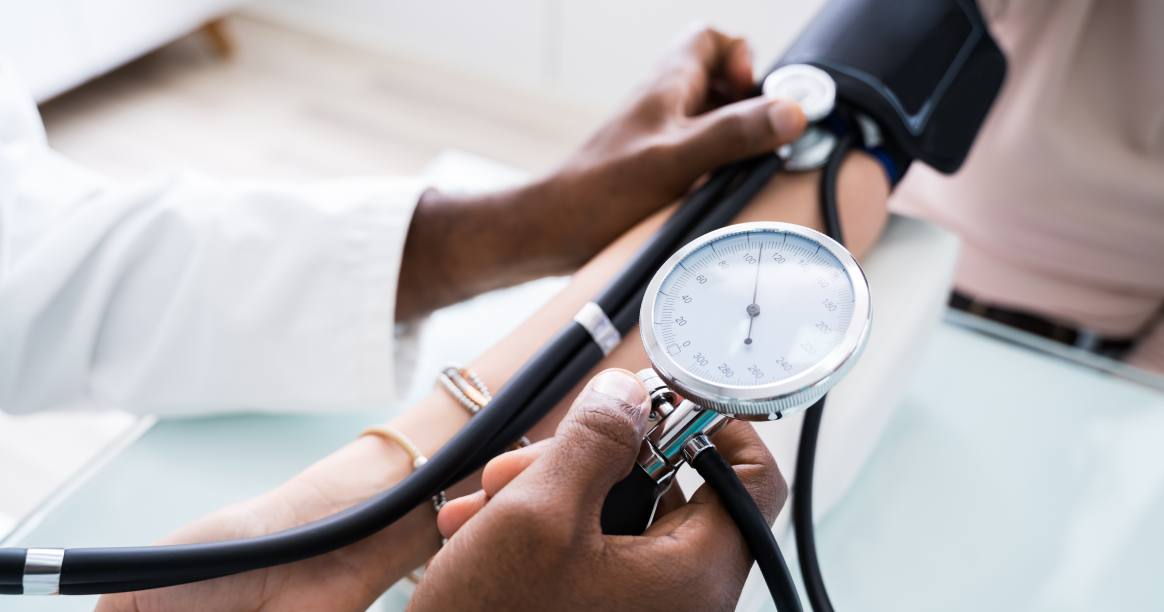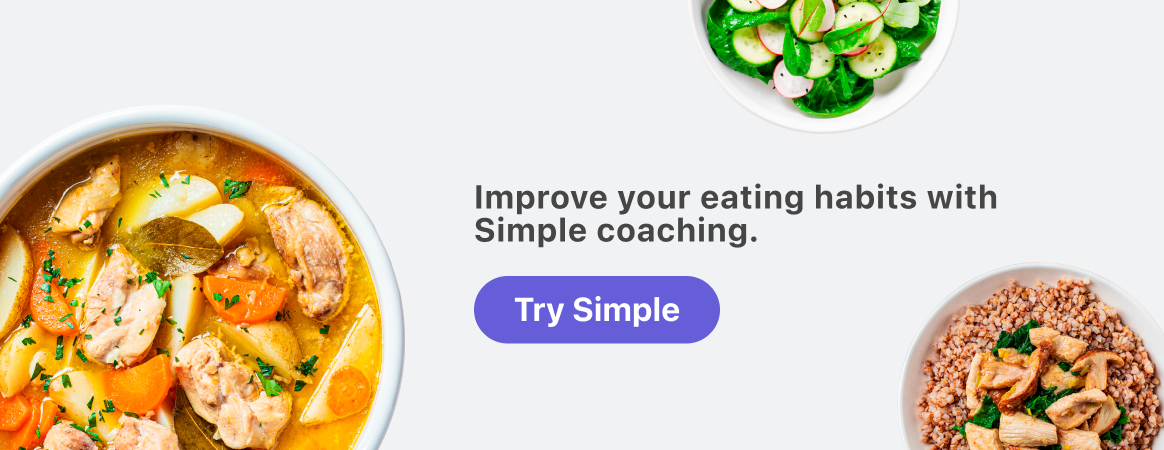Does intermittent fasting lower your blood pressure?

Everything these days is rising: temperatures, the cost of living, the number of social media influencers, and with them, possibly your blood pressure.
Maybe at your last physical, your numbers were a little higher than usual, and because high blood pressure runs in your family, all the ups and downs over the past few years have you worried.

You’ve heard about some of the possible health benefits of intermittent fasting and may have some questions like? — does fasting lower blood pressure, or could it help blood pressure stay within normal limits? Or does fasting raise blood pressure? Just how can not eating affect your blood pressure? If I already have high or low blood pressure, is intermittent fasting safe for me?
You’re in luck! You came to the perfect place to find out about all things fasting and blood pressure.
Fasting’s effect on your blood pressure and heart health
Before we get into how can fasting lower blood pressure, let’s go over some blood pressure basics.
What is blood pressure anyway?
Your heart pumps blood through your body to provide oxygen, energy, and nutrients to your cells. On the return flow, it removes cellular waste and takes it to the organs that get rid of it. The force of your blood against the walls of your veins is your blood pressure.
How does blood pressure work?
Blood pressure is represented by two numbers, like this: 120/80. The first number (120) is your systolic blood pressure and measures the maximum pressure during a heartbeat. The second number (80) is your diastolic blood pressure and measures the minimum pressure in your arteries between beats.
A normal blood pressure falls between 90/60–120/80. There are a range of factors that can influence blood pressure ranges including age, gender, and different medical guidelines. Being consistently either above or below this range can lead to serious complications such as stroke, heart disease, kidney disease, and circulation problems.[1]
What’s the difference between high and low blood pressure?
High blood pressure, or hypertension, is when blood is forcefully pumped through the arteries. Over time, this can lead to damaged blood vessels.[2] You can kind of think of it like beach erosion from the force of storm waves.
When blood needs to be pumped with extra force, the heart has to work harder. There is some good in working your heart, like with exercise, but with hypertension, the heart gets overworked, increasing the risk of heart failure.
Low blood pressure, or hypotension, is a sign that the heart is not pumping well. This can cause poor blood flow to major organs and lead to symptoms like dizziness and fainting.[3]

What affects blood pressure?
Weight
Excess body fat has long been shown to have an effect on blood pressure.[4] It can increase resistance to blood flow in the vessels. Increased fat tissue surrounding the blood vessels — and the inflammation and insulin resistance that may come with excess body fat — can also hinder vasodilation (the flexibility of the blood vessels), making it harder for blood to flow. This resistance in blood flow forces the heart to pump harder.
Exercise
During exercise, muscles need more oxygen and energy, so blood pressure increases to get them what they need. Over time, with consistent physical activity, the heart becomes stronger and more efficient at pumping.[5] The blood vessels also respond by becoming more flexible and less resistant to changes in blood volume. Both changes lead to improved blood pressure numbers.[5]
Sleep
Poor sleep and sleep disorders can affect blood pressure. Sleep disorders like obstructive sleep apnea mean the body is not getting enough oxygen throughout the night. Blood pressure will increase while you’re sleeping to try to get more oxygen to organs that are trying to recover from the day.[6]
Improvements in all these factors are potential intermittent fasting benefits. If all of this sounds good to you, learn more about them and the different intermittent fasting schedules in our breakdown on intermittent fasting for beginners; then take our Simple quiz to match with your best schedule.
Hydration
Chronic dehydration can lead to hypertension.[7] When you’re not drinking enough water, blood volume is low, and the heart has to pump harder to work with the blood it does have. Dehydration can also make the blood thicker, making it more resistant to flow (think trying to pour a smoothie vs. a glass of juice).
Fasting and blood pressure

Let’s get to our big question — does intermittent fasting lower blood pressure directly?
It was thought that the central connection between how fasting lowers blood pressure was weight loss and other metabolic changes. However, a recent study has shown that fasting to lower blood pressure in men with pre-diabetes— even without weight loss — is possible![8]
If you want to find out whether or not does not eating during certain windows, to lower your blood pressure is for you, get the green light from your doctor first, then use our guide to put together an intermittent fasting meal plan to help you eat well, maintain your weight, and potentially get your blood pressure down!
Other fasting benefits for your cardiovascular system
We now know that healthy blood pressure is key for a healthy heart and that fasting can help you maintain it, but fasting does more for your heart than just lowering blood pressure, like:
- Weight loss — specifically fat loss, and especially around the belly. Belly fat is a good indicator of visceral fat (fat around the major internal organs).[9] Reducing body fat makes the heart’s job a little easier.[10]
- Reducing LDL cholesterol. LDL is also known as “bad” cholesterol, and that increases your risk for atherosclerosis (a build-up of fats and cholesterol in the blood vessels) and heart disease.[11]
- Increased insulin sensitivity. Intermittent fasting helps the body switch energy sources from carbohydrates to fat. That “metabolic switch” helps the body use insulin more efficiently, reducing the risk of type 2 diabetes.[12]
All of these factors lead to a healthier, less stressed heart.
Can you strengthen your heart by fasting?
There’s no evidence that directly shows you can strengthen your heart by intermittent fasting (that tends to be exercise’s domain), but, as we’ve seen, there’s plenty that shows how fasting can support a healthy heart.
You can increase this beneficial effect on heart health even more by eating heart-healthy foods, like berries, whole grains, leafy green veggies, and oily fish, during your eating window.
Should you follow an intermittent fasting schedule?
If you’re interested in fasting for blood pressure or any of the other benefits we mentioned, chat with your doctor about it first, to make sure it’s safe for you.
The best way to know if intermittent fasting is a good fit for you is to give it a try! Take our Simple quiz to get started with a fasting schedule that suits your needs, and we’ll hold your hand while you get comfy. Our in-app articles will show you the ropes so you can feel confident, start making progress, and not get thrown off track by any rookie intermittent fasting mistakes!
What if I have hypotension?
If you have hypotension (i.e., low blood pressure), fasting may not be the right fit for you. Talk about any plans to change your diet with your doctor before you start anything new.
Even with normal blood pressure, some intermittent fasting side effects can look similar to hypotension symptoms, such as dizziness, headaches, and fainting. If you try fasting, listen to your body and pay attention to any signals it gives you. If side effects like these don’t go away after a few days, go see your doctor and get them checked out.
Tips on starting intermittent fasting for better blood pressure

Plan your meals
Knowing what to eat during intermittent fasting can help you optimize the benefits while limiting the risks.
Eat more heart-healthy foods
Include generous amounts of fruits, vegetables, whole grains, and healthy fat (e.g., avocado, fatty fish, olive oil, nuts and seeds). Heart-healthy foods are considered so because they contain minerals and electrolytes like magnesium, potassium, and calcium. They are essential to supporting a healthy and well-functioning heart.
Lower your salt intake
Sodium is the fluid balance mineral. Too much, and your body will hold onto water, increasing your blood volume. Too high a blood volume can put extra pressure on your organs and blood vessels.[13]
Lower your salt intake by eating more fresh foods and avoiding adding salt during cooking or at the table.

Who should avoid intermittent fasting?
Intermittent fasting is generally safe for healthy adults, but for some people, fasting carries a higher risk. Check with your doctor before starting if:
- you’re pregnant, breastfeeding, or trying to conceive
- you have a body mass index (BMI) < 18.5
- you have (or are at risk of having) an eating disorder or have a history of one
- You have type 1 diabetes
- you take prescription medications
- you’re under 18 years old, or 80 years old or more
- you’re extremely active
Fasting’s impact on blood pressure varies among individuals and depends on factors like the type and duration of fasting. Short-term fasting may lead to temporary blood pressure reduction.[16] However, individual responses differ, and consistency in dietary and lifestyle changes is crucial. Always consult a healthcare provider before starting any fasting regimen, especially if you have existing medical conditions or take medications.
It is possible for caffeine to raise blood pressure [17], but everyone is different. If it does, usually the increase is short term. If you’re fasting for blood pressure reasons, talk to your doctor about whether you need to limit caffeine and read our guide to learn what you can drink while intermittent fasting.
Drinking water can support lower blood pressure.[7] Proper hydration helps support healthy blood volume and keeps your blood flowing. Drinking too much water can also be risky. Be sure to check with your doctor or dietitian about how much is enough for you.
The time of day that blood pressure is the highest is usually midday or when you are most active.[18] Blood pressure should drop to its lowest while you are resting at night. Having uncontrolled hypertension or poor sleep quality can affect that.

- Xia T, Zhao F, Nianogo RA. Interventions in hypertension: systematic review and meta-analysis of natural and quasi-experiments. Clin Hypertens. 2022 May 1;28(1):13.
- Martinez-Quinones P, McCarthy CG, Watts SW, Klee NS, Komic A, Calmasini FB, et al. Hypertension Induced Morphological and Physiological Changes in Cells of the Arterial Wall. Am J Hypertens. 2018 Sep 11;31(10):1067–78.
- Sharma S, Hashmi MF, Bhattacharya PT. Hypotension. StatPearls Publishing; 2023.
- Fantin F, Giani A, Zoico E, Rossi AP, Mazzali G, Zamboni M. Weight Loss and Hypertension in Obese Subjects. Nutrients [Internet]. 2019 Jul 21;11(7).
- Pinckard K, Baskin KK, Stanford KI. Effects of Exercise to Improve Cardiovascular Health. Front Cardiovasc Med. 2019 Jun 4;6:69.
- Palagini L, Bruno RM, Gemignani A, Baglioni C, Ghiadoni L, Riemann D. Sleep loss and hypertension: a systematic review. Curr Pharm Des. 2013;19(13):2409–19.
- Watso JC, Farquhar WB. Hydration Status and Cardiovascular Function. Nutrients [Internet]. 2019 Aug 11;11(8).
- Sutton EF, Beyl R, Early KS, Cefalu WT, Ravussin E, Peterson CM. Early Time-Restricted Feeding Improves Insulin Sensitivity, Blood Pressure, and Oxidative Stress Even without Weight Loss in Men with Prediabetes. Cell Metab. 2018 Jun 5;27(6):1212–21.e3.
- Darsini D, Hamidah H, Notobroto HB, Cahyono EA. Health risks associated with high waist circumference: A systematic review. J Public Health Res. 2020 Jul 3;9(2):1811.
- Jayedi A, Khan TA, Aune D, Emadi A, Shab-Bidar S. Body fat and risk of all-cause mortality: a systematic review and dose-response meta-analysis of prospective cohort studies. Int J Obes . 2022 Sep;46(9):1573–81.
- Jung E, Kong SY, Ro YS, Ryu HH, Shin SD. Serum Cholesterol Levels and Risk of Cardiovascular Death: A Systematic Review and a Dose-Response Meta-Analysis of Prospective Cohort Studies. Int J Environ Res Public Health [Internet]. 2022 Jul 6;19(14).
- Anton SD, Moehl K, Donahoo WT, Marosi K, Lee SA, Mainous AG 3rd, et al. Flipping the Metabolic Switch: Understanding and Applying the Health Benefits of Fasting. Obesity . 2018 Feb;26(2):254–68.
- King J, Lowery DR. Physiology, Cardiac Output. StatPearls Publishing; 2023.
- Vasim I, Majeed CN, DeBoer MD. Intermittent Fasting and Metabolic Health. Nutrients [Internet]. 2022 Jan 31;14(3).
- Welton S, Minty R, O’Driscoll T, Willms H, Poirier D, Madden S, et al. Intermittent fasting and weight loss: Systematic review. Can Fam Physician. 2020 Feb;66(2):117–25.
- Wilhelmi de Toledo F, Grundler F, Bergouignan A, Drinda S, Michalsen A. Safety, health improvement and well-being during a 4 to 21-day fasting period in an observational study including 1422 subjects. PLoS One. 2019 Jan 2;14(1):e0209353.
- De Giuseppe R, Di Napoli I, Granata F, Mottolese A, Cena H. Caffeine and blood pressure: a critical review perspective. Nutr Res Rev. 2019 Dec;32(2):169–75.
- Gong S, Xu Y, Ye R, Liu K, Li J, Yang C, et al. Peak blood pressure-guided monitoring may serve as an effective approach for blood pressure control in the out-of-office setting. J Clin Hypertens . 2020 Dec;22(12):2192–201.
